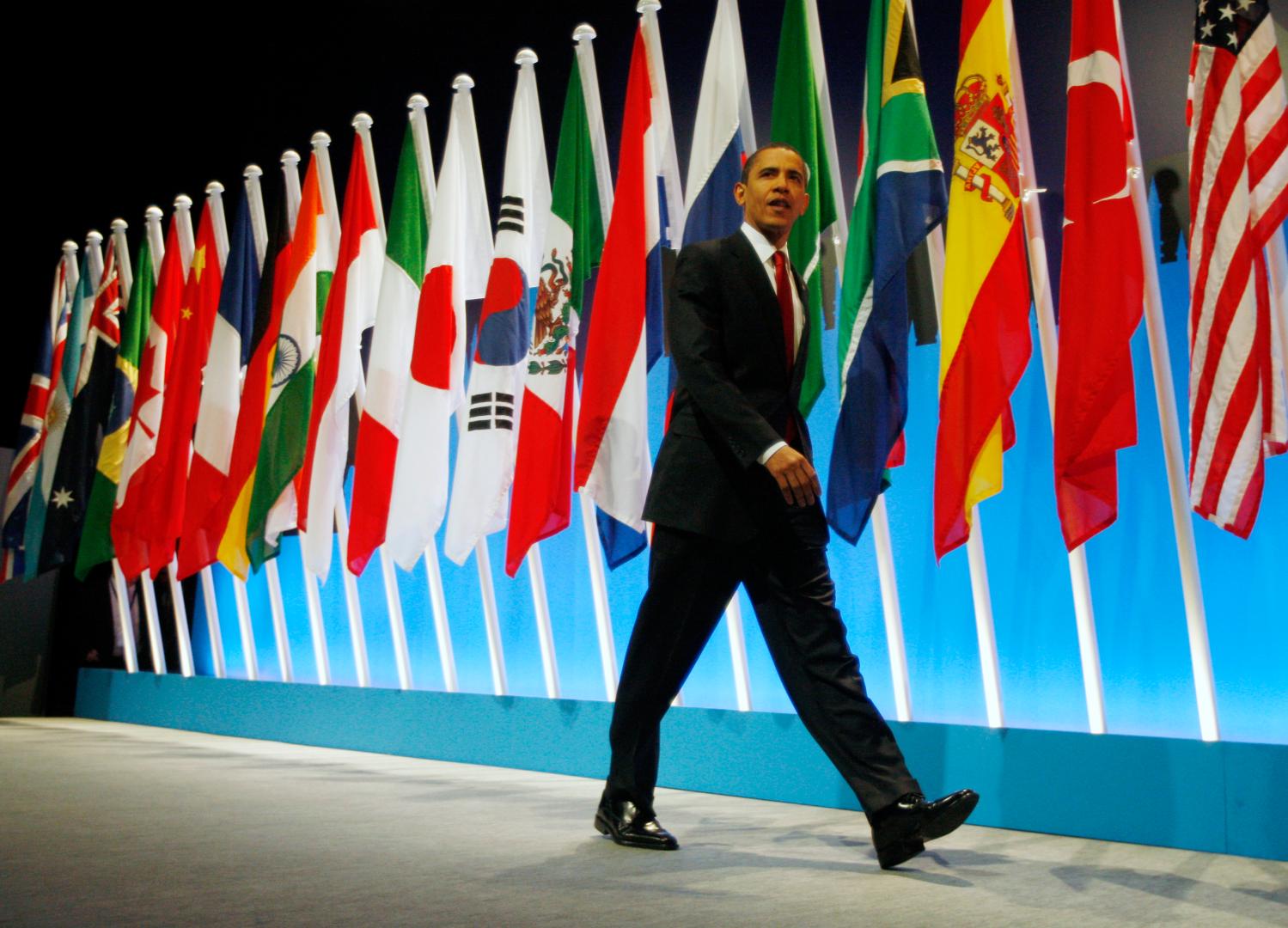Leaders of the Group of 20 (G-20), representing 85 percent of the global economy’s output, face a long list of agenda items when they gather on April 2 in London for their second summit. As the world combats a “great recession,” the leaders must address how to help stabilize financial markets and re-start economic growth, reform the global financial system, and aid developing and emerging economies.
Amidst this background of critical issues, Brookings’ global economic and development experts explore a range of recommendations for global policy coordination in advance of the summit and note which issues the leaders should address at the table—and beyond—in order to stem the crisis and avoid future ones.
Articles
Stimulate, Reform, Coordinate: A Macroeconomic Agenda for the G-20 » (PDF)
Eswar Prasad proposes a set of policy responses, including macroeconomic stimulus, regulatory reform, global policy coordination and reform of the international financial architecture, that should receive immediate attention and action by G-20 leaders.
Tame Protectionism and Revitalize Trade » (PDF)
Paul Blustein discusses the threat of global economic protectionism and how leaders can realistically address the trend and tackle through next steps with the World Trade Organization.
Speed the Flow of Money to Poor Countries » (PDF)
Homi Kharas addresses the impact of the financial crisis on poor countries, and proposes that the focus of the G-20 should shift from calls for new money to speeding the flow of money already committed.
Mobilize the G-20 to Respond to the Global Economic Crisis » (PDF)
Colin Bradford and Johannes Linn discuss the nature of the G-20 summit and propose seven specific measures that the leaders should act on in order fight the current economic and financial crisis.
Empower the Regional Development Banks » (PDF)
Mauricio Cárdenas makes the case for increasing funding to the regional development banks while mobilizing additional resources for the IMF in order to leverage immediate solutions.
Aid Africa » (PDF)
Ernest Aryeetey and John Page address Africa’s economic landscape and how policymakers in Africa can respond to the crisis as well as how the international community can support Africa through aid and trade.
Good Governance: Learn from the Missing Countries » (PDF)
Daniel Kaufmann explores the fundamental issue of governance and how governance weaknesses contributed to the financial crisis, what can be learned from countries with good governance models and how the G-20 should utilize these lessons to implement reforms.
Focus on What Asia Wants » (PDF)
Lex Rieffel looks at Asia’s perspective on the summit meeting and the global financial crisis, noting the core issues surrounding agreement on increasing resources for the IMF.
Understanding and Addressing Political Instability » (PDF)
Raj Desai examines the issue of political instability in the wake of the financial crisis and proposes a set of action items to help governments ease economic challenges for their citizens.



